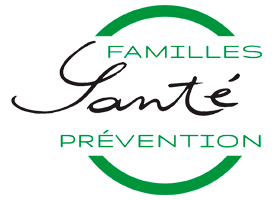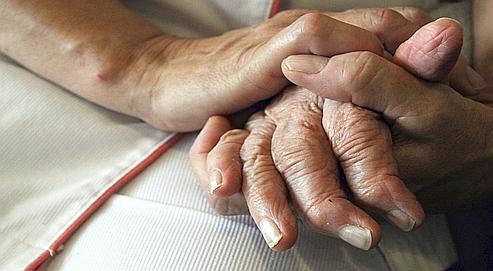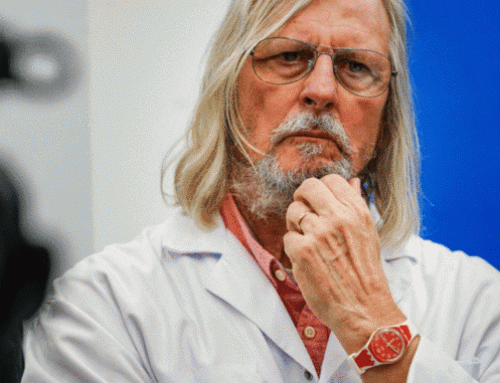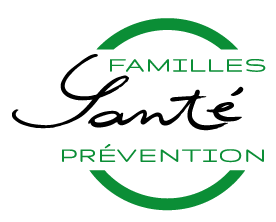Letter No 6 of the Professor Henri Joyeux – 22th of April 2014
Worrisome Prospects, Huge Spending
The medical community is increasingly worrying you about l’Alzheimer’s disease. You spend time looking for your car keys or you can’t find this urgent file, and immediately, it comes to your mind. Worse than that, someone may have whispered into your ears “Beware, you are getting Alzheimer’s! ” Perhaps you are simply too busy, or you feel heckled at work or by your family members. Suggesting such a thing is for sure the best means to scare you, especially if you have reached or are approaching the age of sixty and that your mom or dad died with this disease.
You hear genetics are to blame, even though Alzheimer’s is in fact mostly linked to epigenetics, i.e. factors involving the pollution in your environment such as air pollution, tobacco or bad nutritional habits.
You can get rid of the first risk by adopting a good and regular physical activity that makes you sweat and practice it twice a week and more. You also can make changes to reduce your exposure to other risks; i.e. tobacco and nutrition.
To these risks you can add the psychic pollution political leaders and the media flood us with on a daily basis. They have lost their common sense and keep adding stress to society. They already tell us than one in ten persons will be having a terrible disease by age 65. In France, we already count one million sick, and we get over 225,000 more cases every year. Three millions persons count at least one Alzheimer’s patient among their loved ones. Nursing homes are waiting for you. In France, local authorities are obliged to allocate funds to promote the autonomy of patients (called “APA”), and specific establishments called EHPAD (medical home for dependent elderly women). Also, specialized homes are multiplying all across Europe and beyond.
What Kind of Memory Issues Do You Have?
Almost every person believes that the first signs of Alzheimer’s are memory issues: “I lost my keys, I don’t remember the name of my neighbor or of my grandchildren… ” Such symptoms are extremely common, but what they mostly reveal is mental fatigue that one should know the cause of. Too much work, too much stress of all sorts, and/or difficulty sleeping. You need rest, better sleep, and longer sleep hours. Generally, women need one more hour of sleep than men. They usually accumulate more stress than men, having to manage not only their job, that isn’t made easier on account of their gender, but also their house and a heavier load of domestic and family tasks.
Eight Risk Factors for Alzheimer’s
Nevertheless, it is possible that Alzheimer’s is approaching. In this case, you need to know the eight factors that increase your risks of contracting the disease. They are revealing of patterns of behavior that all can be altered. It is never too late to rectify your lifestyle and take the right direction.
- A low education level is noticed in 20% of patients. This is why it is particularly damageable when children do not receive basic knowledge at school: reading, writing, and counting at an early age. Let us not forget that 20% of French primary-school-aged children are do not master these three fundamental skills. What a waste, when one knows how much public authorities spend on education!
- Tobacco damages the brain, on top of increasing risks of cancer to many organs (lung, respiratory system, brain, urinal tract, pancreas or lymphatic system…). It should be gone from the entire planet! By the industry is not short of sly claims such as the one that tobacco helps stimulate your neurons and protects from Alzheimer’s. The tobacco industry is very creative in its lies when it comes to make us be good consumers. If we rightfully reflect on setting up taxes on environmental pollution, we should also think of taxing personal pollution, the kind that we deliberately expose ourselves to as persons. Such tax could come in the form of a “malus”, implying a decrease in medical reimbursements, or an increase in medical insurance premiums.
Beside tobacco, one should add all forms of so-called “soft drugs” to the list. Let’s insist that there is no such thing as a “soft drug”. Let us recall young – and increasingly younger – consumers that Hashish’s current concentration in TetraHydroCannabinol (THC) ranges from 30 to 35%, while it used to amount to only 5%. Young people believe that they are smoking an earth-friendly green plant and think of themselves as environment advocates, while they are directly fooled by wealthy and powerful lobbies that are trying to convince that it brings happiness to everyone. Raising premiums based on behavior exists in the car insurance industry. It should be expanded to the way we drive our health capital, provided we are previously given complete quality information on health. - Lack of Physical Activity regards 15% of Alzheimer patients. It can also be linked to mental idleness. Recently, research has demonstrated an obvious fact: mental and physical activities are very tightly linked, since the latter cannot occur without a decision from the first. Spending close to 4 hours a day watching TV (a record for French citizens) can in no way stimulate one’s brain, if one judges by the low intellectual level of most TV shows, except perhaps some rare late night shows.
- Depression, which concerns 12% of Alzheimer cases, and increases the risk to contract the disease. However, we are not told, although it is more than just probable, medication used to treat depression, anxiety, sleep issues are often times responsible for memory problems, because they are being chronically consumed. The pharmaceutical industry never will fund such a study, as they want you as their consumer for life, their treatment being most often covered by insurance.
- Arterial hypertension concerns 10% of Alzheimer patients. It is linked to other risks factors such as obésity and diabetes, which each affect 10% of patients too. These three factors are directly linked to bad nutritional habits. Following suggestions from advertising agencies, we are lead to consume too much dairy and animal products, especially cow dairy products that contain too much calcium, animal protein and growth factors that are meant to the calf and not to human bodies, whatever their age. Being vegetarian is the best nutritional choice, to which we do not include vegans, who never eat any animal products, even eggs, fish, white meats or smaller animal dairy. In the long run, vegans that do not take supplements run the risk of becoming anemic, suffer chronic fatigue and have insufficient stress and sexuality hormone levels.
- Finally, genetics are responsible for 5% of Alzheimer’s patients. This is very small number of patients. Let us stress that as of today, no specific gene has been identified in patients that do not suffer any other genetic anomaly, such as Down Syndrome. For example, it is estimated that incidence of Alzheimer’s is three to five times greater in Down Syndrome patients than in the general population.
First Signs of Alzheimer’s
First, there is a decrease in vital energy and spontaneity, which can lead to feelings of being depressed. You find out that you do things slower and not as well as a few years ago. You search your words, which only cultivates the worry. A decrease in performance levels does not appear immediately.
Beware however: do not worry excessively at this stage. Having slight memory losses is pretty common. Hence it should be thought as common. Beware of some doctors that, under pressure from the pharmaceutical industry, are trying to test this or that new molecule, and stress you out by telling you that you could be starting Alzheimer’s. They could propose a trial treatment and more or less complex psychological tests that could easily worry you. Also know that the industry and research are very anxious to find trial patients because they compete to find the molecule that hopefully will prevent, avoid or cure this terrible disease. Prospects of a Nobel Prize and billions of dollars of profits are strong motivators!
Nevertheless, there exist two early signs of the disease, that must be spotted by the patient himself.
Two Early Signs: Progressive Loss of the Senses of Taste and Smell
These two signs are the loss of the senses of taste and smell.
Unfortunately, few doctors know that a loss of the sense of smell can be one of the first signs of Alzheimer’s, as well as Parkinson’s. This loss is caused by a degeneration of the neurons that are located at the level of the olfactory bulb. Many neurologists do not dare talk about it to not scare their patients. However, it should be talked about in order to draw positive consequences for the patient’s health.
This symptom is called anosmia. It is rarely pointed out by patients to their doctors. They do not know about it, especially since doctors to not enquire about it with their patients, however old they are. However, it is one of the first signs of these terrible diseases, although it is variable. Generally, Parkinsons’ patients have a harder time sensing smells, while Alzheimer’s patients sense them better but forget about their typical features.
In order to fight this loss of the senses of smell and taste, you will have to start changing the way you eat, better and tastier [1] ! Here are some practical advices to help keep your senses of taste and smell strong.
How to Stimulate Your Taste Buds for Your Gratification!
Know that your taste buds renew in your tongue every ten days, provided that you stimulate them by making good use of your “palate of flavors” (See letter from April 2014).
Swallowing your food after chewing a mere four times – like your dog or cat would – is the best way to slowly lose your sense of taste.
Your tongue’s tastebuds do not renew themselves well if they are not used. You eat by habit. Sometimes, you force yourself to eat because you aren’t really hungry and stress pushes you to eat excessively sweet or fat in order to soothe your stomach that is having a harder and harder time to digest foods. You no longer know what the foods you eat really taste like.
Changing the way you eat and seeking smells and flavors that you ingest is urgent. That will take a few months. A short amount of time, may be a week fasting, drinking water and eating organic seasonal fruits, can only help. And don’t forget to have a glass of ORGANIC red wine (lower in its number of sulfites). It can only help your brain cells, as can good chocolate (dark, with 70% cocoa or more)!
For example, you can stimulate your tongue taste buds by eating Omégachoco, a French organic dark chocolate bar made with flax seeds. You can eat one little square every morning and evening, by having it melt between your cheek and your gums. Within a few minutes, your taste buds will be overcome by the taste of dark chocolate. On top of this, the Omega 3 of flax seeds will stimulate your memory brain cells [2].
This advice is also valid if you are being undergoing chemo: your mouth’s taste buds are abraded by chemo and you risk losing enjoyment and desire to eat.
How to Stimulate Your Sense of Smell For Your Enjoyment
The design of our olfactory system is pure genius. It regenerates every three months [3]. At the tip of your nasal cavity, you can find very thin nerve filaments, even thinner than your hair. They go through a thin bone blade and transmit the olfactory influx to the main zone of our memory: the hippocampus. That is where good and bad smells are memorized such as nuances of rose, jasmine, citronella or chocolate, or childhood memories.
Research discovered the existence of a potential marker for depression or relapse by relying on troubles involving the sense of smell. [4]. Patients dealing with depression have a harder time distinguishing levels of intensity in smells. They have trouble identifying smells that are present in blends, and are less sensitive to pleasant smells, whereas at times, bad smells do not disturb them.
This is valid for other neurodegenerative diseases, such as Alzheimer’s.
A Convenient Means to Stimulate Our Sense of Smell
Stimulating our sense of smell helps preventing and pushing away neurodegenerative diseases that can become trying disabilities of the end of life. Research believes that by doing so, one could push the disease back five years.
To that aim, ecologist engineer and thyme gatherer Guillaume Bouguet and I created a little olfactory stimulation kit (Thyme Olfactive Stimulation) with five thyme chemotypes that have very similar smells. The goal is to learn to differentiate them [5]. It is not about undergoing a stressful olfactometer test measuring olfactory acuity with a specialist. What we propose is a fun and comfortable olfactory stimulation experience (see www.flore-en-thym.com)
Each of the five chemotypes possesses a specific type of taste and smell, that can easily be distinguished with a little training :
- Thyme Thymol has a classic “thyme” smell, powerful and flowerful.
- Thyme Carvacrol has a milder and more peppery smell than Thyme Thymol.
- Thyme Linalol’s smells reminds of lavender. Its smell is a touch spicy, with notes of bergamot and citrus.
- Thyme Thuyanol’s smells has a touch of menthol; it is resinous, with notes of eucalyptus.
- Thyme Geraniol’s strong smell reminds of citronella or lemon combined with mandarin.
During a conference I gave in 2013 in southern France, I had the occasion to talk with the public about early detection of neurodegenerative diseases, which are so worrisome for the elderly. I explained the importance of problems involving the sense of smell, and I found that the public was very attentive to understand how it worked and interested to know how to delay such diseases by a few years.
The following day, the organizer of the conference communicated to me about the numbers of elderly persons that had been taking a walk in the Garrigue, i.e. in southern French fields full of aromatic herbs, bowing over thyme and rosemary so as to learn distinguishing their different perfumes. This story motivated us to create the Thyme Olfactive Stimulation, and to use it with concerned persons, that need it increasingly after the age of Sixty.
The Riks of Overmedicalization
Beware of overmedicalization in retirement homes. It is highly promoted by the pharmaceutical industry.
Here is a telling example from a nurse ::
“ I was a direct witness of the accumulation of treatments, be they general care or psychiatric care of the elderly. I had psychiatric patients that had to swallow 5 to 8 tablets per meal and 3 hypnotic treatments…”
Taking too much of such medication is be an aggravating factor for the disease.
In an upcoming book I am currently writing, I will ask the public: “Do you want to get Alzheimer’s or Parkinson’s ?” I believe that understanding the causes of these diseases can help prevent it or slow it down if you find that some symptoms are already present.
Best Regards,
Professor Henri Joyeux
Sources
[1] See my book “Changez d’Alimentation ” (“Change the Way You Eat”) , Publisher: Le Rocher, Paris 2013..
[2] See my books “Le Chocolat et le chirurgien“(Chocolate and the Surgeon) , écrit avec Jean Claude Berton, maître et chercheur chocolatier, créateur d’Omégachoco.
[3] Our white blood cells renew every 7 days, our gut’s cells renew every 4 to 5 days, our red blood cells renew every 120 days and the ones of our liver every year.
[4] “Imagerie et Cerveau” unit, research center Inserm UMR930, Université François Rabelais Tours, France – M. Naudin et coll.- State and Trait Olfactory Markers of Major Depression.
[5] See my book “ Le Thym et le chirurgien ” (Thyme and the Surgeon) , coauthored by Guillaume Bouguet, écologist ingeneer and thyme gatherer.
La Lettre du Professeur Joyeux is an independent and free information service est un service. It specializes providing the wider public and families with disease prevention information. Click here to subscribe to the letter.
This health advice is provided free of charge by this organization and cannot be considered as personal medical advice. No treatment should be initiated solely on the basis of this content. It is strongly advised to consult a properly licensed health professional to seek responses with regard to one’s health and well-being. No information or product mentioned on this website is meant to diagnose, treat, atone or cure a disease.
You have a Personal Health Question ? ( Confidential response) or you wish to enjoy our exclusive services?
Become an exclusive member of our association for one year by clicking HERE.







